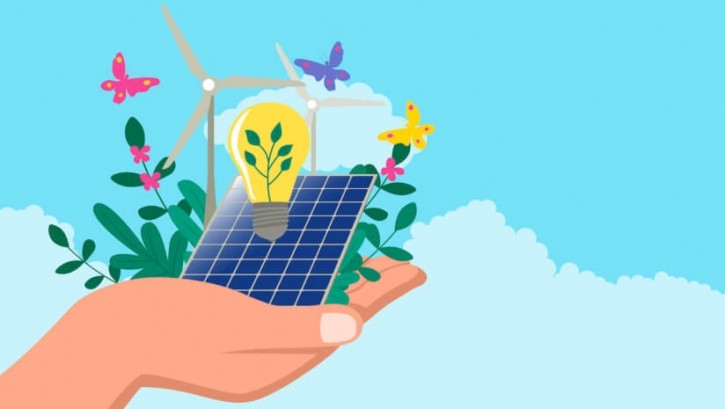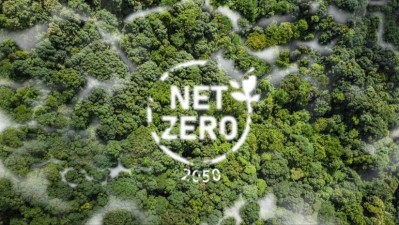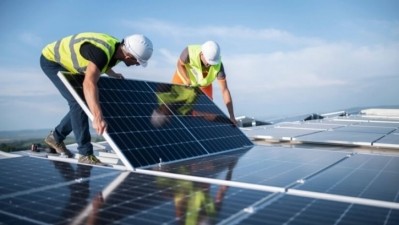Short read
3 reasons to self-generate renewable energy

1. A necessary move
The now Prime Minister, Keir Starmer, has committed to a reduction of 68% by 2030 (compared to 1990 levels), but a recent report from the Committee on Climate Change (CCC) indicates that the nation will fall short of its target.
While the UK has met all its emission targets so far, the report suggests delays, U-turns and a general slowing in pace from the previous government has meant more recent progress hasn’t been sufficient.
At the same time as raising the alarm, the CCC report underscores the importance of renewable energy and clean technologies in helping to accelerate progress. Specifically, it believes British-based renewables are the quickest and most affordable way to reduce reliance on “unstable” global fossil fuel markets.
In an exclusive roundtable with Food Manufacture, which streams tomorrow at 10:30am BST (register to watch Unleashing the Power of Self Generated Energy online), five experts will highlight the benefits of self-generating renewable energy, alongside some of the lessons they have learnt along the way during their respective journeys. Here, Food Manufacture gets a sneak preview of some of the perks they have witnessed after investing in the likes of solar.
Speaking to James Ashford, Heck Food’s head of procurement, ahead of the panel, he said he recognises the vital role the sector plays in reaching net zero: “As a manufacturer we believe self-generating energy with renewable technologies is essential for reducing costs, enhancing sustainability, ensuring energy security, and meeting consumer demand for more environmentally friendly products.
“At HECK! we are committed to building a long-term strategy to acknowledge our role in preventing the worst effects of climate change. Our commitment to the challenge is not to just tick boxes as a business but is to show carbon leadership. By investing in renewable technology, we are taking a proactive approach, leading on innovation and corporate responsibility in the energy-intensive manufacturing sector.”
2. A ‘compelling’ investment
This ‘jump-in’ approach is also something Heck believes will sit well with today’s consumers – a notion that has been reflected recently in PwC’s 2024 Voice of the Consumer survey.
According to the survey, which collected the perspectives of more than 20,000 consumers from across 31 countries and territories, some consumers are willing to spend 9.7% more for sustainability produced or sourced goods, despite cost-of-living pressures.
While many surveys have shared similar results in the past and it’s often found that consumers say one thing and do another, there are also other ways self-generating renewable energy could offer desirable paybacks outside of consumer’s wallets.
"Self-generating renewable technology is crucial for businesses today,” said Richard Wood, managing director of Noble Foods and Noble Green Energy, adding that “the rising energy prices and fairly dramatic fall in panel prices has made it financially compelling".
“We’re seeing between three and four years for payback time,” he noted.
3. Improved factory resilience
Alongside decent (and quick) returns, self-generating also enables a business to understand its future costings and plan better.
“Self-generating renewable technologies enable companies to reduce their carbon footprint, reduce exposure to market price movements on their running costs, whilst also helping them achieve their net zero targets,” James Cottrill director of B2B sales at E.ON Energy (the roundtable's sponsors), informed Food Manufacture.
This was also a point emphasised by Frank Gordon, director of policy for the Association for Renewable Energy and Clean Technology (REA): “Self-generating, on-site renewables are critical to a sustainable and profitable, future proofed business and more widely, to a thriving UK economy. As we have seen in the past few years, imported fossil fuels expose us to price shocks and volatility that can have devastating impacts.
“Generating your own renewable energy on-site future proofs you against such price shocks and allows businesses to reduce emissions and harvest CSR benefits at the same time.”
But it’s not just simply resilience in terms of price, it’s also in terms of access to energy; as Tom Maidment, group product sustainability senior manager at Hilton Foods, explained.
Hilton Foods has started installing solar panels across a number of its sites and whilst it can’t generate all the energy it needs from the rooftops, Maidment said generating its energy has allowed the company to “utilise unused resources to effectively decarbonise and improve the resilience” of its factories.
He offered an example to further illustrate his point: “As the grid becomes increasing capacity constrained, you can generate some additional energy as well as what you can get from the grid, or even potentially to supplement that where the grid is intermittent.”
















